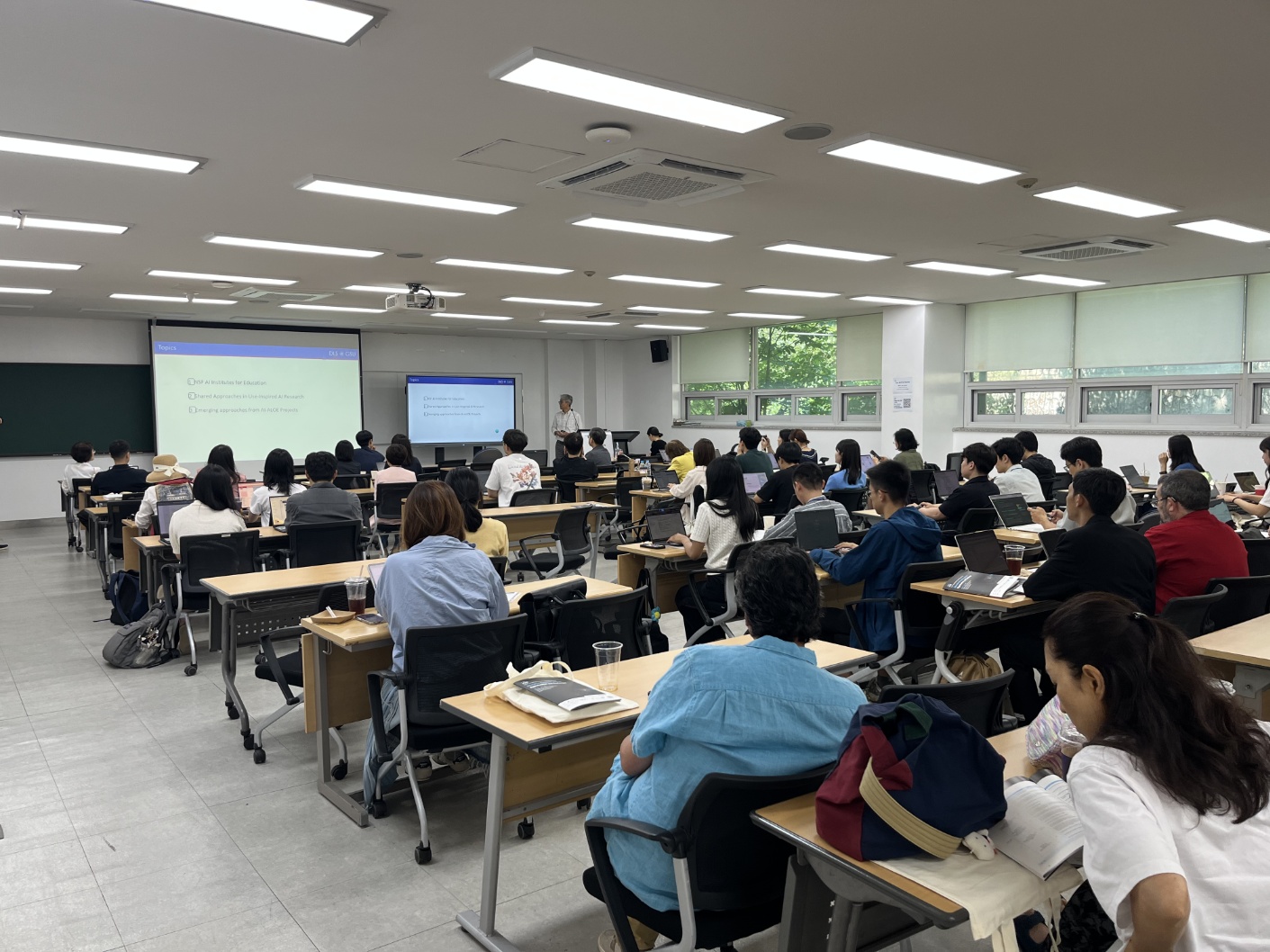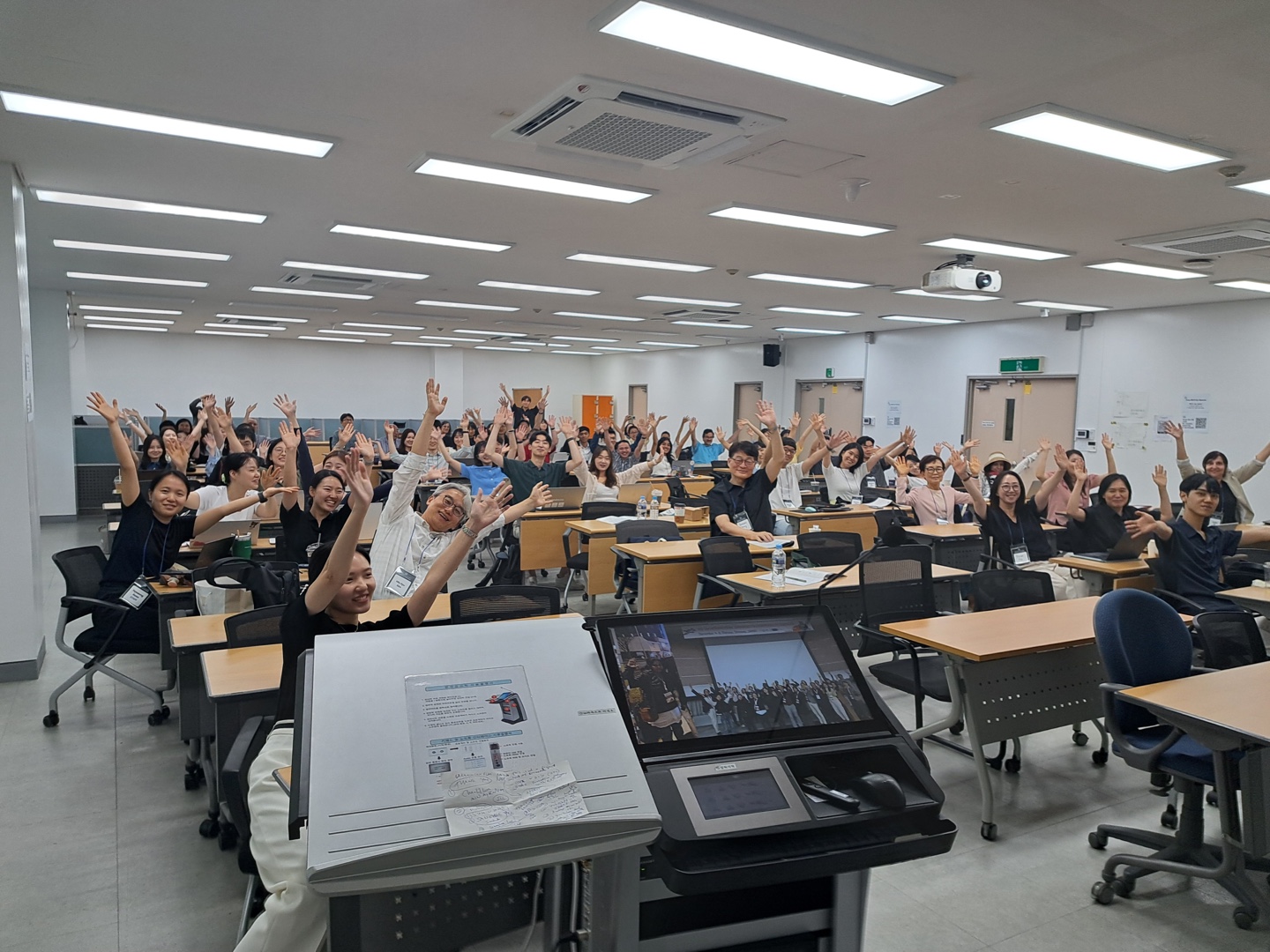
Ahnaf Chowdhury Niloy, our new graduate associate, has joined the lab—welcome!
August 19, 2025
We are excited to welcome a new Graduate Research Associate to our lab!
Ahnaf Chowdhury Niloy is a Ph.D. student in the College of Education and Human Development at Georgia State University (GSU) and has been awarded the Dean’s Research Doctoral Fellowship for 2025–2026. He holds an MBA from Bangladesh University of Professionals and a BBA from East West University. Before beginning his doctoral studies, Ahnaf gained professional experience at The Coca-Cola Company in Bangladesh and at the global Big Four accounting and consulting firm KPMG.
His experimental research on the behavioral relationship between AI usage and creativity has received international attention, with features in outlets such as CNN and The Wall Street Journal. His primary research interests include AI-mediated learning and the strategic management of technology.
Welcome, Ahnaf!

A virtual workshop titled “AI-Scaffolded Pre-Classroom Learning with SMART” was held.
August 1, 2025
On July 25, 2025, our research team hosted a virtual workshop titled AI-Scaffolded Pre-Classroom Learning with SMART, part of the NSF-funded IUSE (Improving Undergraduate STEM Education) project.
Held via WebEx, this 90-minute interactive session brought together faculty members from the Department of Physics and Astronomy at Georgia State University (GSU) and Perimeter College. The workshop explored how AI-supported tools can enhance students’ engagement and conceptual understanding in Introductory Physics I and II courses.
Dr. Min Kyu Kim, Principal Investigator, opened the session by introducing the SMART system, an AI-powered tool that supports pre-class preparation through summarization tasks.
Seora Kim followed with a live demonstration, walking participants through how students submit their summaries, receive automated feedback on missing concepts and connections, and revise their work using interactive concept maps.
Dr. Mohamed Shameer Abdeen, Co-Principal Investigator, shared practical strategies for integrating SMART into physics courses. He emphasized SMART’s alignment with existing teaching workflows and highlighted benefits such as deeper in-class discussions, improved reading habits, and earlier detection of student misconceptions.
Next, Hyunkyu Han presented findings from recent pilot deployments. The results showed that students who revised their summaries using SMART’s feedback achieved stronger alignment with expert models and performed better on quizzes, homework, and midterms. These gains were observed consistently across gender and ethnicity, demonstrating the tool’s broad effectiveness for diverse student populations.
During the hands-on session, Seora Kim and Hyunkyu Han guided participants through SMART’s instructor dashboard. They demonstrated how to review class-wide analytics on commonly missed concepts, monitor individual student revisions, and track learning progress over time.
The workshop also included an open discussion where participants shared ideas for future enhancements such as mobile and voice-input features, better support for equations and diagrams, and more conversational AI responses. Attendees also raised thoughtful questions about feedback precision, motivation through grading incentives, and adaptation for upper-level courses.
Dr. Kim concluded the session with an invitation for further collaboration and a preview of upcoming developments, including multimodal AI features and an expanded shared-assignment library to support course design.
This workshop highlighted SMART’s practical value and future directions in supporting concept learning and engagement in STEM education. We look forward to continued faculty collaboration to refine and expand the system’s impact on student learning.

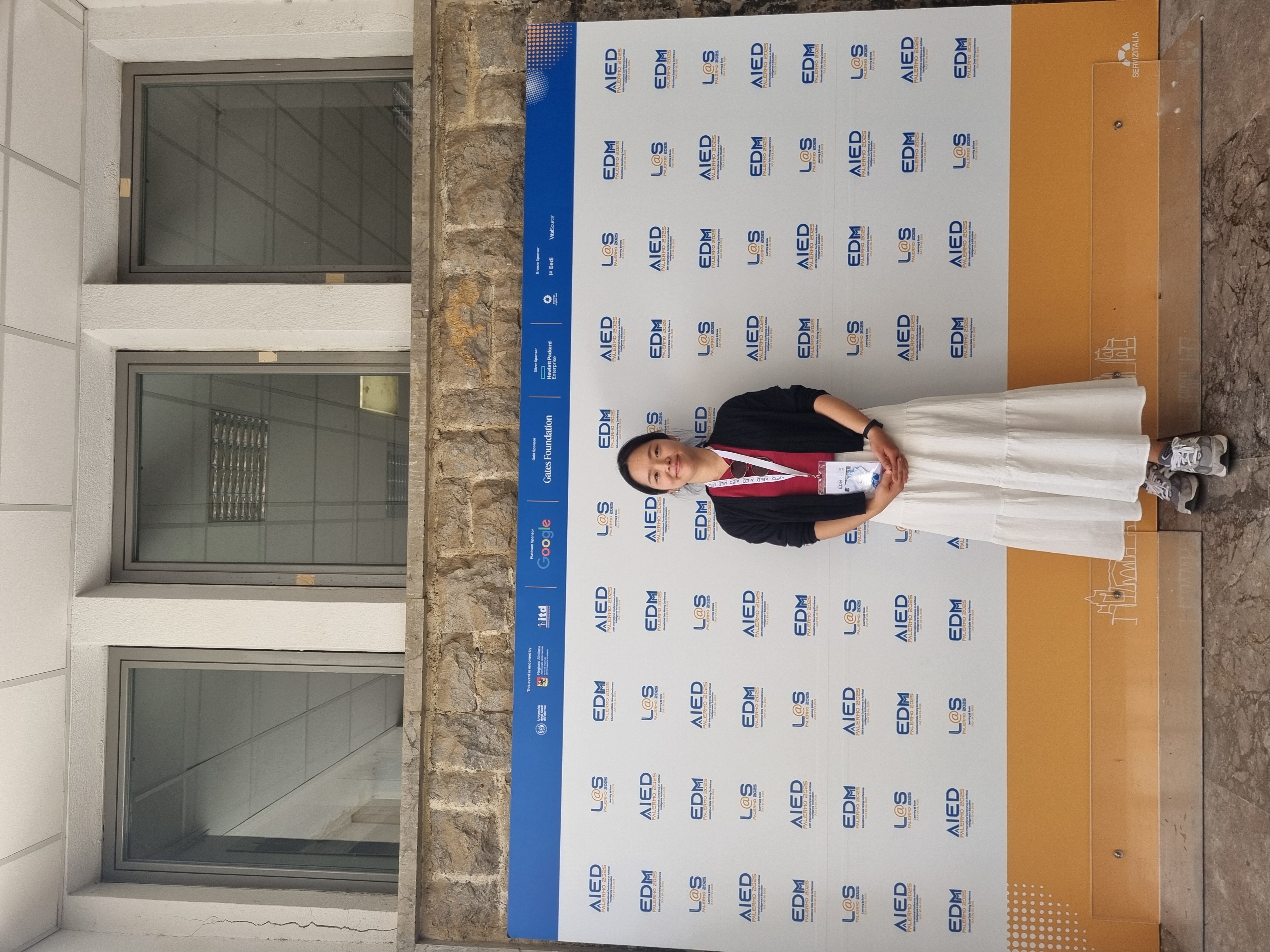
Yoojin Bae was selected to participate in the EDM Workshop.
July 25
Yoojin Bae was selected to participate in the Workshop on Multimodal Multiparty Learning Analytics (MMLA), held as part of the Educational Data Mining Conference (EDM 2025) from July 20 to July 23 in Palermo, Italy. Her travel was funded by Google.orgthrough the NSF AI Institutes Virtual Organization (AIVO), which provides up to $2,500 for members of NSF AI Institutes to share their work and collaborate on advancing educational AI.
During the workshop, she presented her study on using multimodal large language models to analyze classroom video data from multiple camera angles. Her research demonstrated how a multimodal large language model can combine visual and contextual cues from classroom recordings to detect patterns of engagement, collaboration, and interaction. By generating interpretable insights from video data, her approach aims to help instructors better understand learning processes, particularly in the context of self-regulated learning, and make evidence-based instructional decisions.
She also served as a panelist in a session representing the NSF AI National Institute, AI-ALOE, where the role of multimodal analytics in advancing educational AI was discussed, along with how NSF AI National Institutes are contributing to the field of multimodal analytics.
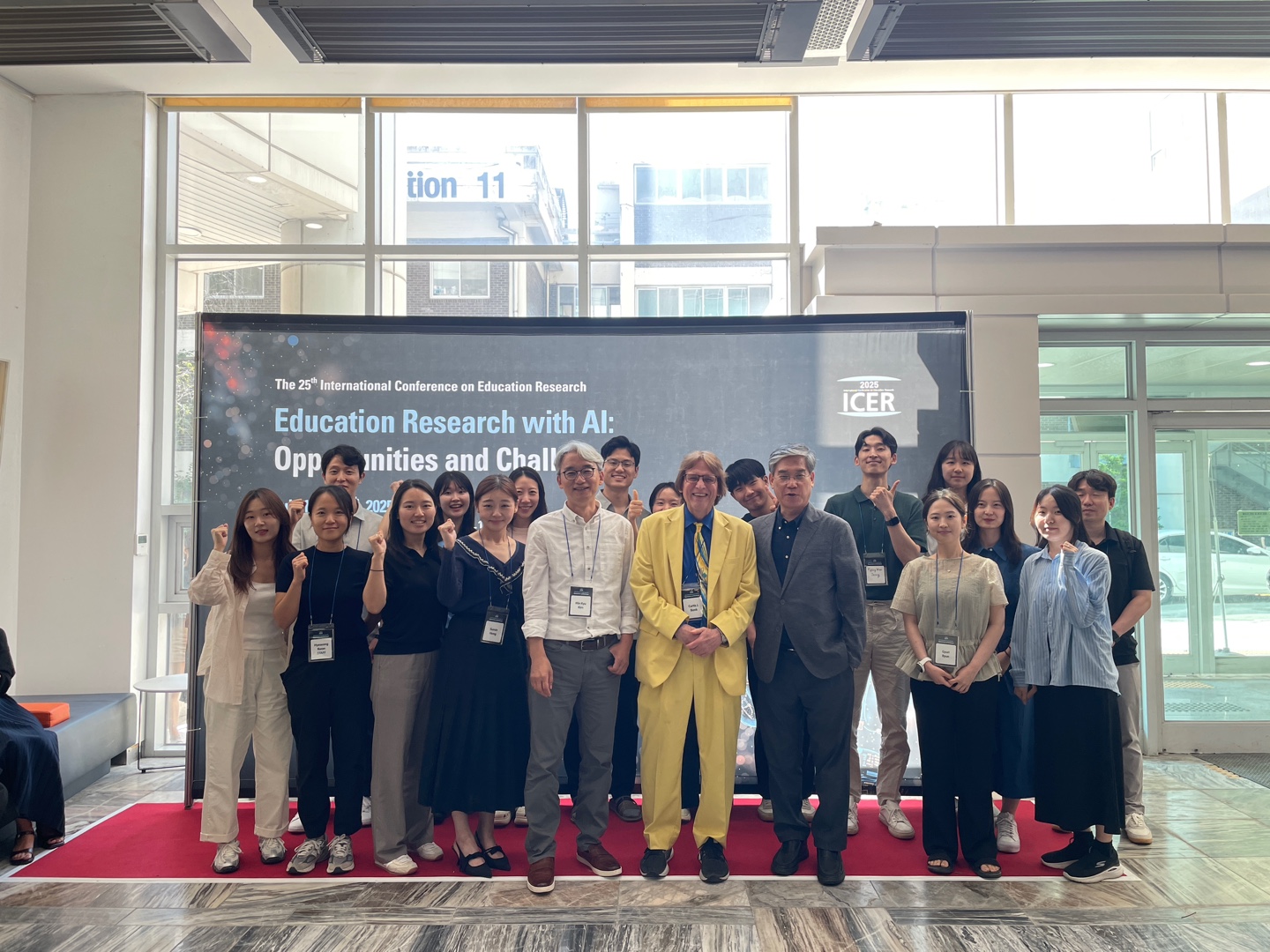
Dr. Min Kyu Kim was invited to deliver two special talks at Seoul National University.
July 15, 2025
Dr. Min Kyu Kim was invited to deliver two special talks at Seoul National University in Seoul, Korea. On July 8, 2025, he gave a special lecture hosted by the Center for Future Education Innovation and the Educational Technology Research Society, titled “Disruptive AI in Education: Opportunity or Threat for Educational Technology Research?”
In his special lecture, Disruptive AI in Education: Opportunity or Threat for Educational Technology Research?, Dr. Kim discussed how artificial intelligence is reshaping educational technology research. He began by introducing the AI² Research Laboratory’s mission to design AI-based learning environments grounded in learning theory and aimed at maximizing learner capacity. He then outlined major NSF-funded projects, including AI-ALOE, which leverages AI for adult STEM learning through human-AI collaboration; IUSE, which uses AI-scaffolded pre-classroom learning to improve conceptual understanding and self-regulation in physics courses; and SaTC, which develops “Private AI” curricula addressing privacy issues in AI systems.
Moving into the “Disruptive AI” section, Kim reflected on the challenges and opportunities large language models and other AI advances pose to theories of learning, such as shifting from human-centric to post-humanist perspectives and rethinking cognitive architectures. He discussed how AI is altering core educational constructs like expertise, problem-solving, and pedagogy, prompting a reevaluation of established frameworks such as TPACK to include AI-generated content knowledge, AI-powered pedagogy modeling, and new forms of instructional curation. He emphasized that in this new environment, instructional practices must balance product and process, address the blurred lines between cheating and problem solving, and integrate rapid, adaptive development cycles. Drawing on examples from collaborative projects, he illustrated how human-AI teaming—both instructor- and learner-facing—can enrich personalization, multimodal engagement, and adaptive learning. He concluded by positioning disruptive AI not simply as a technological shift, but as a catalyst for reimagining educational research, design, and practice in ways that are theoretically grounded, ethically responsible, and centered on human learning goals.
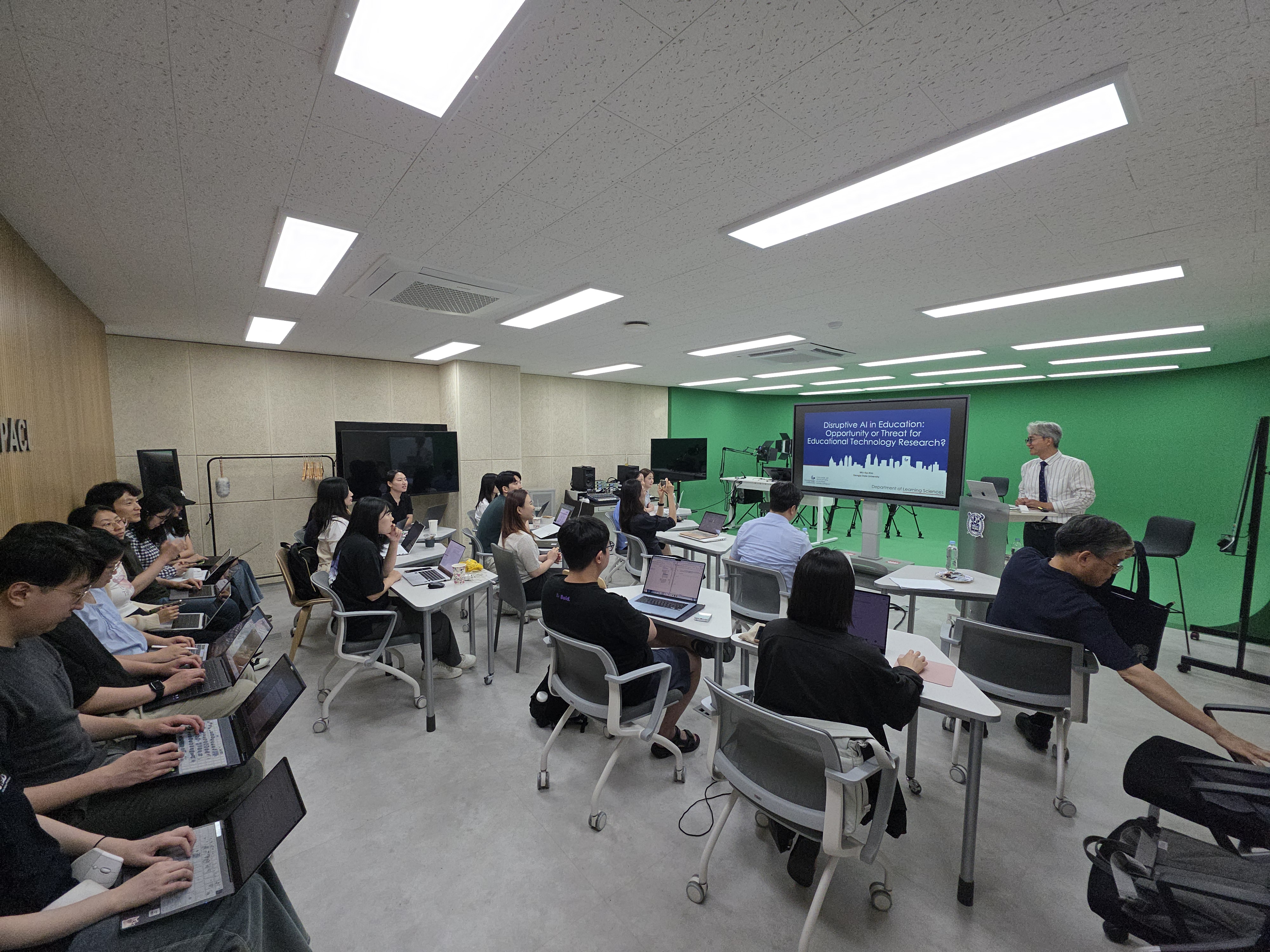
In addition, he was one of eighteen invited speakers at the 25th International Conference on Education Research (ICER), held at Seoul National University from July 10 to 11, 2025. (Link to the ICER 2025) His presentation, “AI for Education: Use-Inspired Approaches and Insights from NSF-Funded AI Institutes,” highlighted cutting-edge research and practical applications of AI in education.
In his ICER 2025 presentation, AI for Education: Use-Inspired Approaches and Insights from NSF-Funded AI Institutes, Dr. Kim explored how use-inspired AI research in education both leverages and advances foundational AI. He framed the talk within the broader objectives of the NSF AI Institutes, emphasizing strategic priorities such as responsible AI research, human-AI collaboration, ethical and societal considerations, AI system safety, open datasets, workforce development, and international cooperation. He profiled five AI in Education Institutes—INVITE, AI4ExceptionalEd, EngageAI, iSAT, and AI-ALOE—describing their work on topics ranging from non-cognitive skills and speech-language services to story-based problem solving, student-AI teaming, and large-scale adult learning.
Drawing on his own work in AI-ALOE, Kim discussed shared approaches in use-inspired AI research: collecting large datasets, developing domain-general models, deploying AI in authentic learning contexts, and designing multimodal AI agents such as classroom video summarization tools. He highlighted the SMART technology project as an example of emerging approaches that integrate generative AI with human-in-the-loop processes, enabling instructor- and learner-AI collaboration to transform and revise learning materials. He demonstrated how this work contributes to learning theory, informs AI design heuristics, and improves educational outcomes—showing, for example, that SMART-supported learners achieved significantly higher concept learning than controls. Concluding, Kim argued that when grounded in robust theory and implemented through iterative, collaborative design, use-inspired AI research can simultaneously advance AI capabilities and transform educational practice in meaningful, measurable ways.
